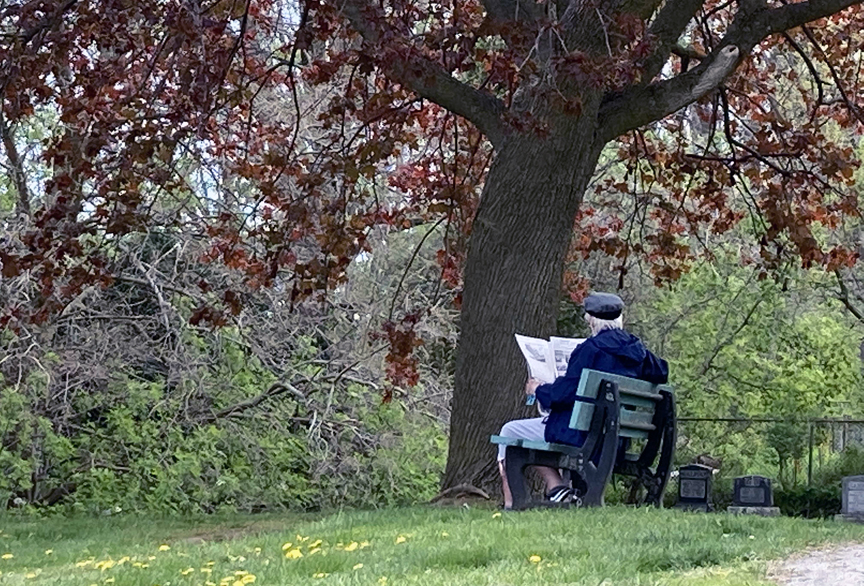
(Thomas Froese Photo)
(Hamilton Spectator, Saturday, October 23, 2021)
Today let’s talk about Holden Caulfield and kids and newspapers, along with reading in general. After all, it’s Reading Week, or at least it’s Reading Week season. Ontario’s universities scatter these weeks at different times through the fall. It’s important.
Because, as long as you’re not reading “Acme’s How to Blow Up the World in 10 Easy Steps,” reading helps you become more human and more whole. In a world that’s hobbling on one crutch or another, that’s a good thing. And you need not be in any formal studies to do this, to pick up some good reading, any more than you need to be Holden Caulfield.
If that name rings a bell it’s because you recognize him as the irreverent teen who’s figuring out life in “The Catcher in the Rye.” Now in 2021 it’s 70 years old, this J.D. Salinger novel that continues to hold its posture and relevance remarkably well.
Holden, you may know, is not really feeling 100 per cent. He suffers from a type of post-traumatic stress, in addition to the anxiety and depression that saddle enough teens. In his existential angst, he sees a world full of phonies and conformists and liars and cheats and the sort of characters that newspapers tend to spill ink on. It’s true. There’s some Holden Caulfield in any newspaper that’s doing its job well.
No, Holden is not interested in social niceties. And who can blame him? But if you ask me (and I’m not saying this just because I have three teens who could blow the roof off our house) Holden has a way of getting closer to holy things than many a sheepish follower in, say, some house of worship.
This may sound strange considering that for many years “The Catcher in the Rye” was among the most-banned books in schools and libraries across North America. This was because, as you may suspect, the novel has some foul language and sexual thoughts and casual drinking. (The internet has since purified us of any false pretences on some of these matters.)
More so, it’s an ironic truth that Holden is the exact sort of character who can show how we’re all, in fact, beggars in need of the same bread. There’s a certain shared humanity in Holden’s insecurities, even as there’s a beauty. It gets into you and it runs through you, not unlike a transfusion. That’s how it often goes with good writing. It goes straight into your blood.
Of course the upright, pretentious folks who seemingly have it together, the ones who Holden especially eschews, would still tell you not to have anything to do with such a guy or such a book. Then again, these people probably don’t read the papers, or much of anything else.
So this is Holden. Say hello. Today he made the paper. Not because his story is entirely unusual. It’s just that it’s a story that got into me, just one reader, a long time ago. And I thought you’d want to know this for the next time you sit at some park bench. Or some beach. Or some favourite chair, reading in-hand, with your feet up. Or when you’re going through a transition.
The book gets its title from this, a line that circles around in Holden’s head, a reference to Robert Burns’ poem “Comin’ Thro the Rye.” It’s a symbol for a time of transition, while wanting to keep something of the former, in this case childhood, while moving out of it.
And isn’t this the nub of it? Some people, in the worst of ways, get stuck somewhere between childhood and adulthood, never really maturing into who they could. Others get stuck in a place that seems mature enough, but it’s just a place of age and brittleness.
Which is to say that, for my money, I’ll still cheer for the grimy-faced kids – with their mouthful of gum and eyes full of wonder – the kids who, in the end, will fill the Kingdom of Heaven.
So pick your place. And read. Read the papers. Read Salinger. Read something even more holy. Find stuff inside that you’d otherwise be blind to. Find that you’re not alone in your lostness. Find that in many ways your life depends on it.
